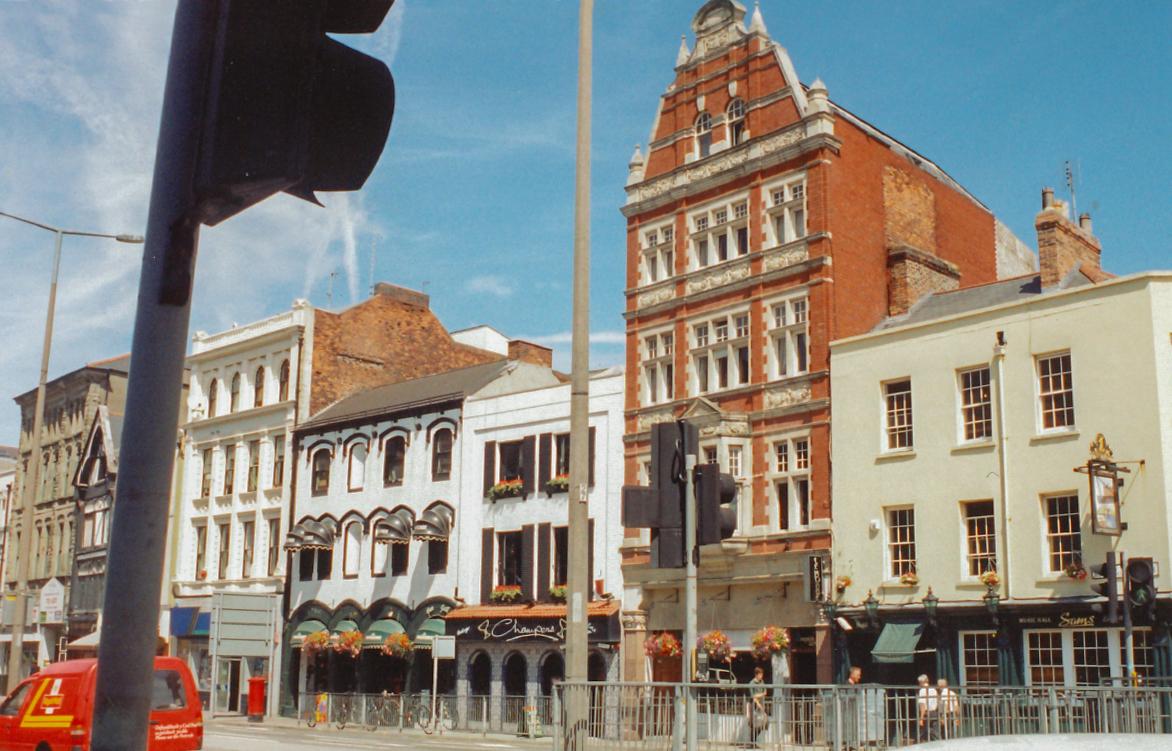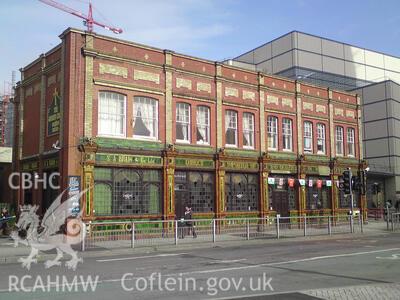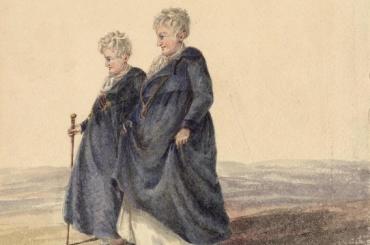Raising the Bar in 1970s Gay Cardiff
The 1970s were a boom time for Welsh gay culture. With the passing of the 1967 Sexual Offences Act – guided through Parliament by Welsh politicians Leo Abse MP and Home Secretary Roy Jenkins – gay sex between men over 21 was no longer a criminal offence.
While many people still faced homophobia, particularly in smaller communities, this new freedom gave rise to a thriving gay social scene in larger towns and cities – with the first openly gay bar opening in Cardiff in 1972.
As well as giving LGBTQ+ people the ability to gather freely and express themselves without risk or restraint, the capital’s 1970s gay scene gave a new lease of life to some of the city’s handsome Victorian public houses. Here are a few of the most significant places in this history of Cardiff’s nightlife.
The King’s Cross
Cardiff’s first official gay bar operated from 1972 to 2011 at 25 Caroline Street. For decades it was ‘the centre of gay life in Cardiff’, according to historian and author of A Little Gay History of Wales Daryl Leeworthy. The Victorian pub had been called The King’s Cross since it opened in 1874, but it was only after it became a gay bar that its sign became a portrait of the reputedly gay King James VI and I.
As the social venue for Cardiff University’s Gay Society, it was an important location for many young people during their coming out and the Victorian pub building was Listed by Cadw in 1999. The venue closed in 2011, in spite of a campaign to save it, before reopening as the Corner House Bar and Restaurant.
The Blue Anchor
This former gay bar, housed in Dutch Renaissance style hotel building at 62 St Mary Street, hosted Cardiff’s first gay disco and played an important part in the struggle for Civil Rights for Welsh LGBTQ+ people.
In 1971 this was the meeting place for the Cardiff Gay Liberation Front, which organised the first march for Gay rights in Wales. In 1972 the bar hosted the first meetings of the Cardiff and Newport branch of the Campaign for Homosexual Equality, which campaigned for legal protections from homophobic discrimination and the lowering of the legal age of consent for homosexuals, to bring it into line with that for heterosexuals. The handsome red-brick building was listed by Cadw in 1999 and is now home to cocktail bar Be At One and Le Monde restaurant.
The Golden Cross
Cardiff’s oldest surviving gay bar and still one of the most popular LGBTQ+ social spots in the city. In its earlier days, this Victorian pub enjoyed a seedy reputation long before it became a gay bar and was described as ‘rougher, but no less fun’ than The King’s Cross.
Dedicated gay venues have been in decline for decades across Western Europe for a number of reasons. Happily, more tolerant societies mean there is less need for specifically gay spaces, while the internet has made the process of connecting marginalised communities easier and safer. Despite all this, the Golden Cross continues to be ‘the grand old duchess of LGBTQ+ Cardiff’, according to Pride Cymru and still provides a place for the city’s gay community to gather.
Its Listed Building status is also long-held, coming in 1975 before Cadw even existed. Among its most striking historical features are its exterior tiles, dating back to 1903, which depict Cardiff Castle and Town Hall.


